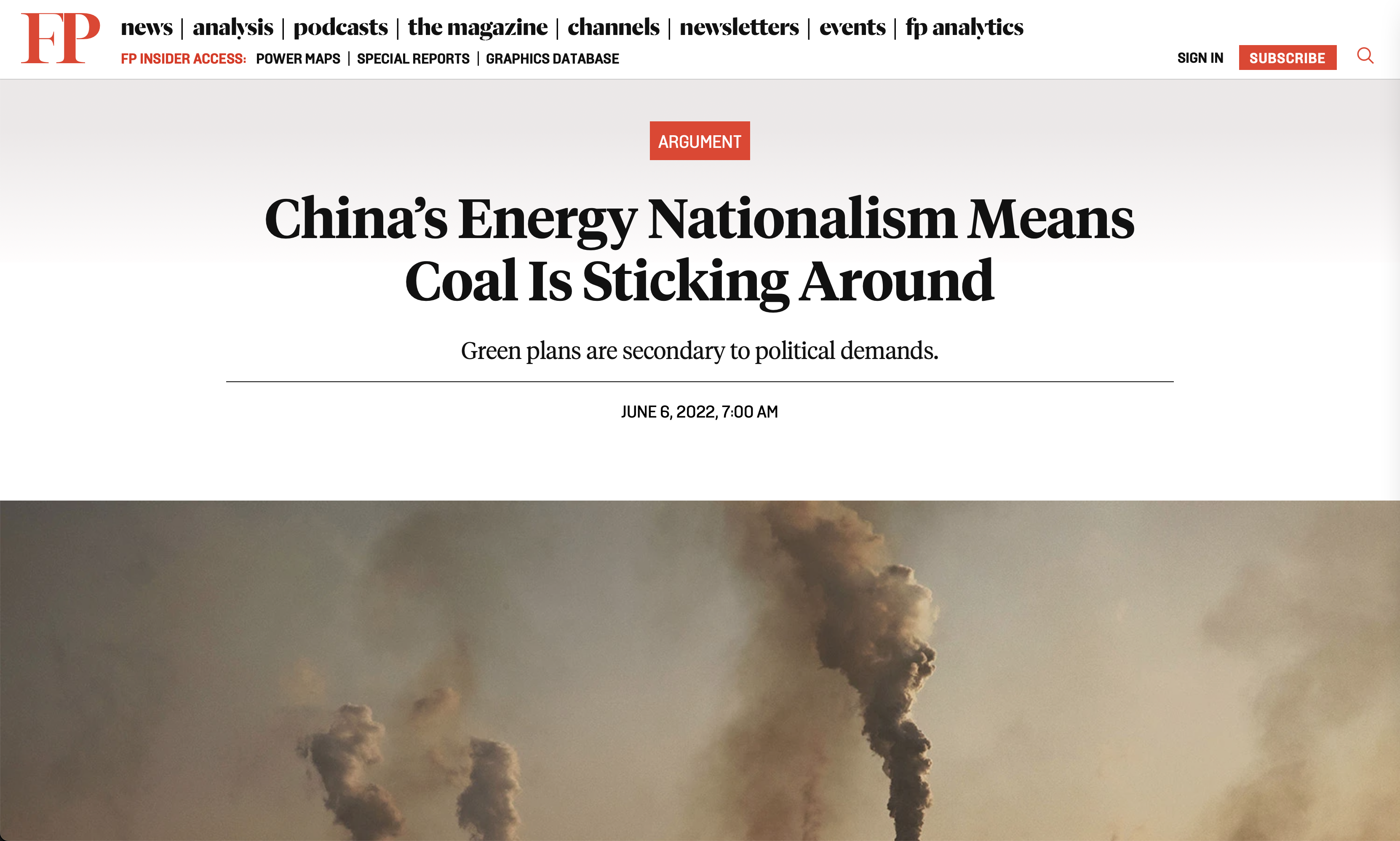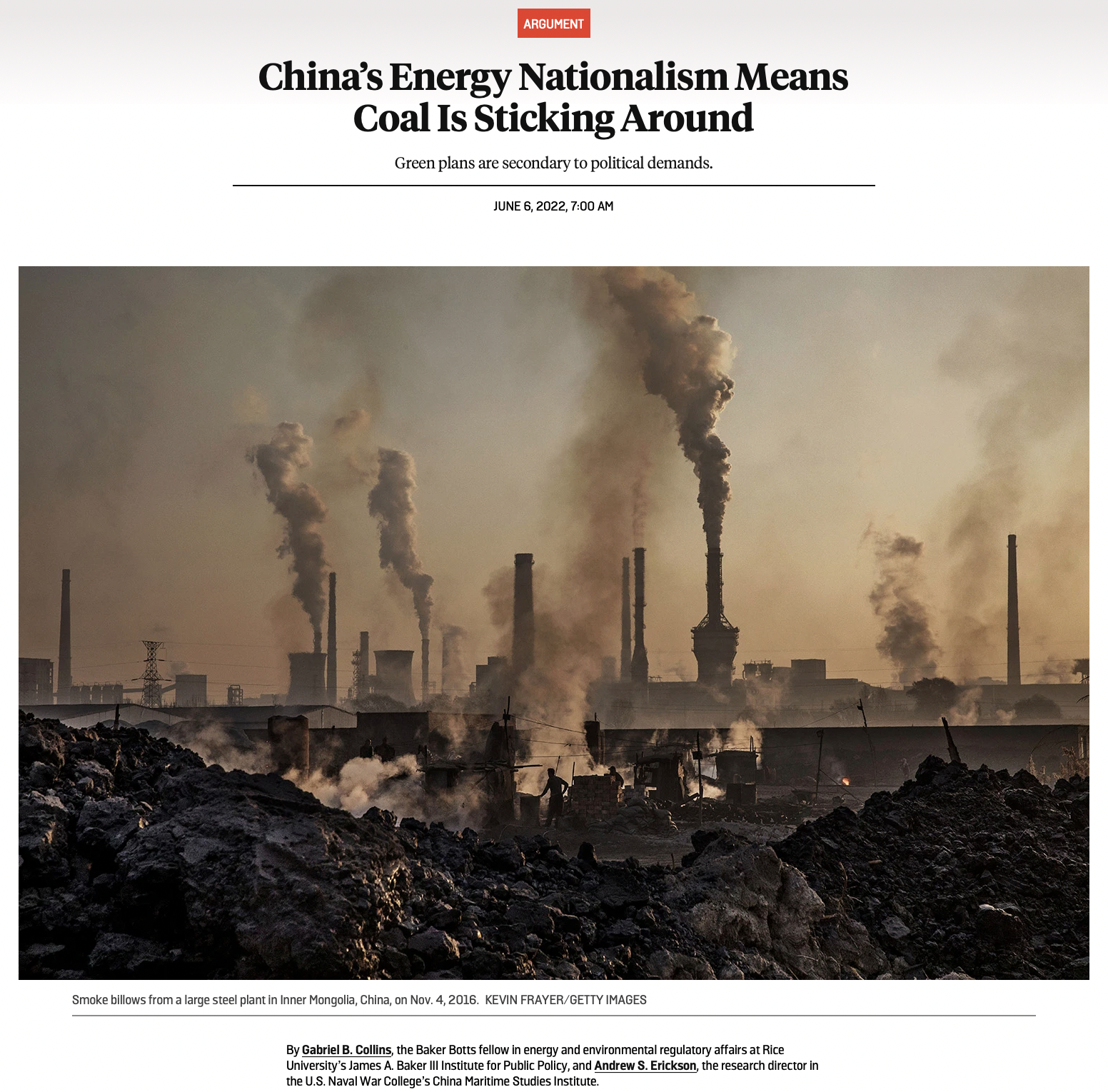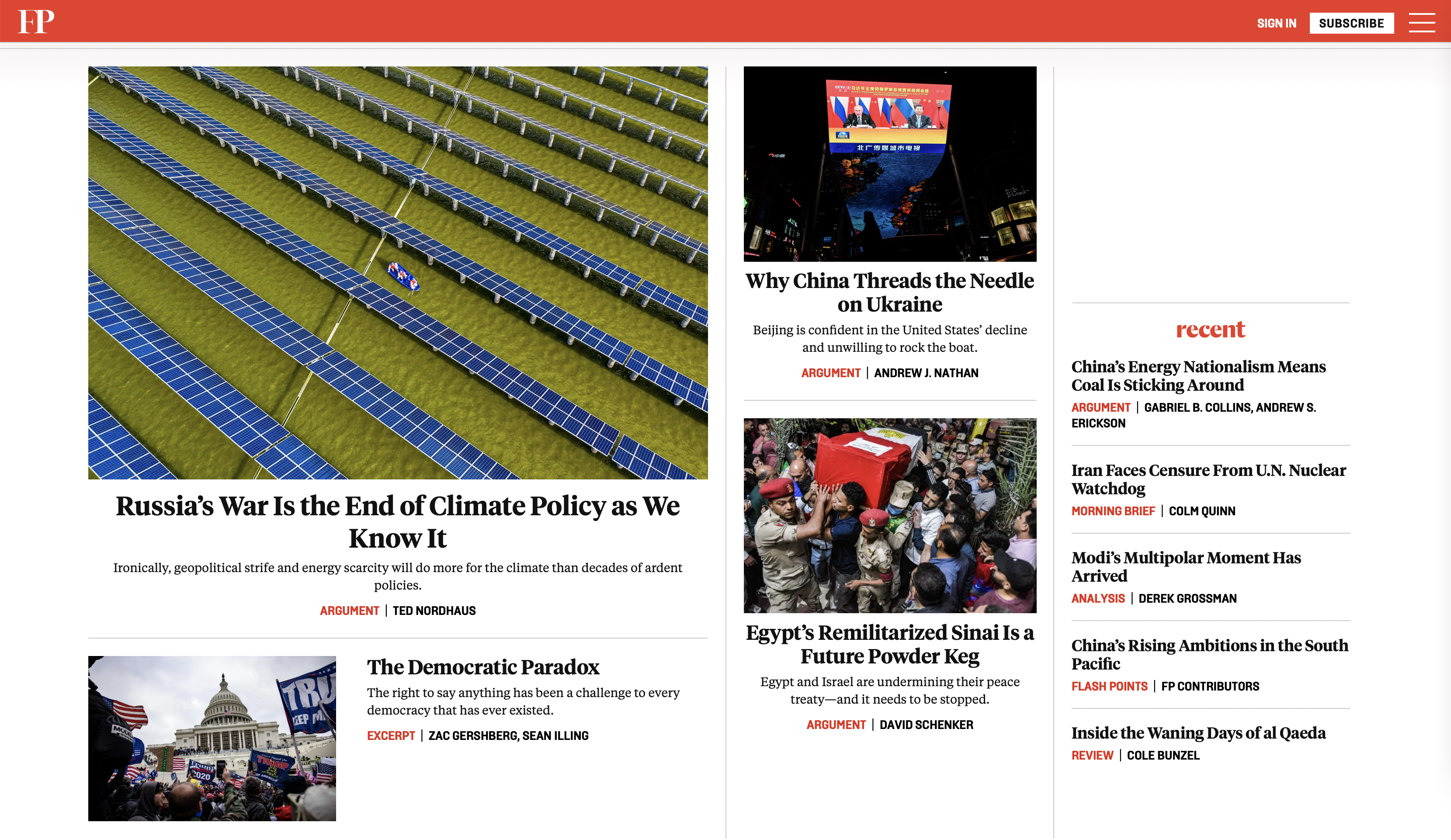China’s Energy Nationalism Means Coal Is Sticking Around
Gabriel B. Collins and Andrew S. Erickson, “China’s Energy Nationalism Means Coal Is Sticking Around,” Foreign Policy, 6 June 2022.
Green plans are secondary to political demands.
By Gabriel B. Collins, the Baker Botts fellow in energy and environmental regulatory affairs at Rice University’s James A. Baker III Institute for Public Policy, and Andrew S. Erickson, the research director in the U.S. Naval War College’s China Maritime Studies Institute.
China is touting its renewable energy investments and has vowed to “accelerate the pace of coal reduction” in coming years. Yet in practice the country continues doubling down on coal on the back of blackouts, energy security fears, great-power competition, and Europe’s biggest land war in nearly 80 years. Fear and risk aversion both favor coal entrenchment, and both are in ample supply in Beijing these days.
As a result, millions of metric tons per day of additional greenhouse gases surge into the atmosphere. And the coal hopper is being loaded higher. Chinese policymakers recently greenlighted a coal mine capacity expansion of an additional 300 million metric tons in 2022—almost the annual production of the entire European Union. That’s enough coal to fill a train of standard rail hopper cars that would wrap around the entire equator, plus enough left to stretch from Washington, D.C., to Los Angeles. … … …
However much “green leadership” the party talks in international forums, it keeps leading the world in burning coal. It treats climate change as a source of leverage in its unrelenting quest to retain a monopoly on political control domestically and deference abroad. The disasters of the global commons can be easily blamed on the rest of the world; power and economic failures at home demand responsibility, or at least scapegoats. Meanwhile, as Chinese policymakers continued allowing King Coal to undercut Queen Green, millions of metric tons per day of additional greenhouse gases would surge skyward.
Cooperating with Beijing requires trusting in the good faith of a dictatorial regime that backslides on binding international environmental commitments and appears to be copping out on COP26’s call to accelerate the phasedown of unabated coal combustion. Worse still, Beijing demands tangible upfront geopolitical concessions by Washington in exchange for ephemeral half-promises on China’s own part—promises that have never materialized in the past.
Domestic economic and political survival imperatives will consistently shunt aside foreigners’ hopes and aspirations for a cleaner Chinese energy system—just as they are now with Beijing’s approval of one of the biggest annual coal production increases in decades. “Trust but verify” falls apart fast when an interlocutor is structurally disincentivized from sustained positive action and treats entreaties for cooperation as opportunities for exploitation.
Accommodations or self-limitations made to coax China to discuss climate issues would, in fact, make the United States, East Asia, and the world lose twice. America would weaken its economy and stress its social fabric while forfeiting its ability to effectively confront China’s ongoing coercive envelopment efforts in the Indo-Pacific, as Chinese interlocutors stall at the negotiating table. Beijing would win on the geopolitical front, but all parties would ultimately lose from degradation of our shared atmospheric and maritime biosphere.
China’s doubling down on coal so soon after the Glasgow summit makes it clear that climate cooperation simply won’t work with Xi and the party pursuing parochial priorities in ruthless Leninist fashion. The only way to avoid continual cop-outs is clear: It’s time for climate competition.
Gabriel B. Collins is the Baker Botts fellow in energy and environmental regulatory affairs at Rice University’s James A. Baker III Institute for Public Policy, whose funding sources are listed here, and a senior visiting research fellow at the Oxford Institute for Energy Studies.
Andrew S. Erickson is a professor of strategy and the research director in the U.S. Naval War College’s China Maritime Studies Institute and a visiting professor in full-time residence in Harvard University’s Department of Government.
The U.S. Naval War College is funded by the U.S. Department of Defense. The views expressed by the authors are theirs alone. They in no way represent those of the Naval War College, the Navy, the Department of Defense, or any other organization with which the authors are, or have been, affiliated.








































